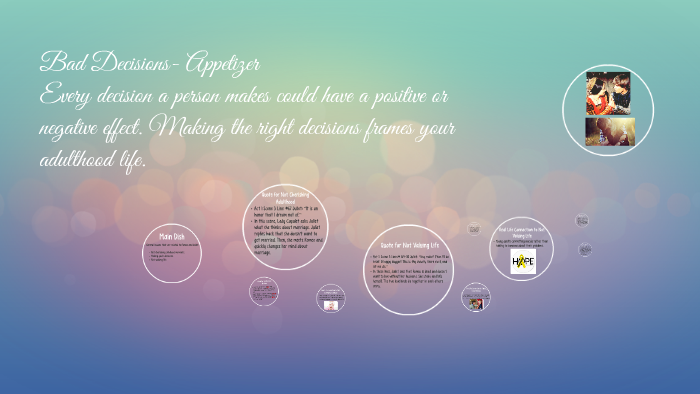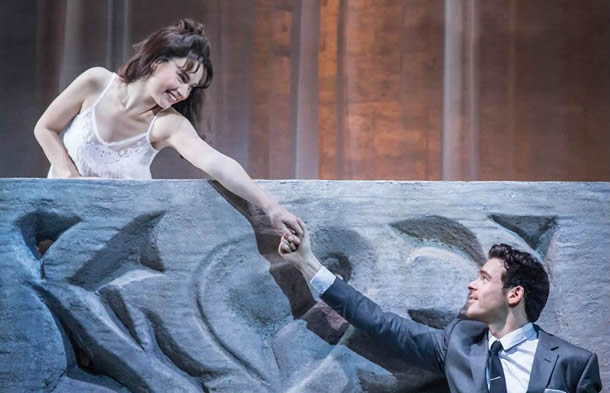

In his final speech, Romeo uses light and dark imagery to describe Juliet as she acts as a source of light in the darkness of the tomb. Up until now, Romeo and Juliet's relationship flourished at night and they each provided the other with light. This last scene takes place in the dark of night. Montague arrives, declaring that Lady Montague has died of grief for Romeo’s exile. The Prince acknowledges the Friar's good interests and instead lays the blame for the deaths squarely on Montague and Capulet for their longstanding quarrel. The two families are finally reconciled as the Prince ends the play by saying, "For never was a story of more woe / Than this of Juliet and her Romeo". The Prince and the Capulets enter the tomb where Romeo, Juliet, and Paris are discovered dead. Hearing the night watchman approach, Juliet fatally stabs herself with Romeo's dagger. She is horrified to see Romeo dead beside her, trying to drink some of the poison from Romeo's vial. Finding it empty, she tries to kiss some poison from his lips. She refuses and he leaves her alone in the tomb. The Friar soon hears watchmen approaching and asks Juliet to leave with him.


Juliet awakens, instantly asking where Romeo is. Upon seeing the bodies of Romeo and Paris, she resolves to remain in the tomb. The Friar enters, seeing the dead bodies of Paris and Romeo on the floor. He kisses her and drinks the poison, dying within moments. He finds Juliet lying peacefully, and wonders how she can still look as if she were not dead at all. Paris becomes wounded and dies, asking for his body to be placed near Juliet's in the tomb. Romeo descends into the tomb carrying Paris’ body. Romeo tries to warn Paris off, but Paris challenges Romeo and they fight. Paris, thinking that he has come to desecrate the bodies in the tomb, confronts Romeo. Romeo enters, planning to break into the tomb to be with Juliet. His page warns him that someone is approaching and they hide in the bushes outside the tomb. Paris arrives at the Capulet tomb to lay flowers at Juliet's grave. To enter in the thoughts of desperate men!" - Romeo "Well, Juliet, I will lie with thee tonight. "Is it e'en so? Then I defy you, stars!" - Romeo
#Romeo and juliet romeo rash decisions series
Haste acts as a vehicle for fate to draw characters through a series of unfortunate coincidences that form the intricately intertwined plot of Romeo and Juliet. Romeo's hasty reaction to Mercutio's death causes his banishment Capulet's rash decision to move up the wedding day causes Romeo to miss the message from the Friar and later, Romeo's haste to consume the poison causes him to die just prior to Juliet's awakening. Romeo lamented being "fortune's fool" at the beginning of the play, but now he acts out of frustration and anger. Romeo rages against the influence of fate.
#Romeo and juliet romeo rash decisions full
Romeo's soliloquy at the beginning of this scene is full of dramatic irony because the dream anticipates the play's final scene when Juliet awakes in the tomb to find Romeo dead and tries to kiss the poison from his lips.Īs fate meddles in Romeo's life, his melodramatic idealism gives way to defiant anger, "I defy you stars!". He proceeds to the apothecary and demands a poison to be sold to him so that if Juliet is dead, then he can take it to be with her. Romeo is shocked and plans to go back to Verona immediately.

He tells Romeo that Juliet has been found dead in her home. Romeo comments that nothing can be ill in the world if Juliet is well. Romeo's servant, Balthasar, enters and Romeo asks him if he has news from Verona. Romeo wakes up after a dream in which he died and Juliet's kiss brought him back to life.


 0 kommentar(er)
0 kommentar(er)
